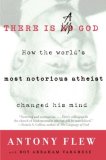With the recent tragedy at Newtown Connecticut, the problem of evil is on everyone’s mind. How could such an evil act be perpetrated? How could God allow such evil? Would a loving God really allow the deaths of 20 innocent children?
Tragedies like this, and the questions it raises, lead meany people to blame God. Others point to this problem as evidence that a true God does not exist. Or they reshape their thoughts about God. He is nice and helpful and all, but limited. Like an old grandfather, he is saddened by our losses and didn’t want this to happen. He was just unable to prevent it – or worse, he didn’t see it coming.
In contrast to such man-centered thoughts, the Scripture’s teaching on evil and suffering is that God permits it, and works behind it, to accomplish His purposes. For those who love God and believe in Him (the elect), God works everything together for their good (Rom. 8:28). And ultimately, God “works all things according to the counsel of his will” (Eph. 1:11). God “does according to his will among the host of heaven and among the inhabitants of the earth; and none can stay his hand or say to him, ‘What have you done?'” (Dan. 4:35). He “has made everything for its purpose, even the wicked for the day of trouble” (Prov. 16:4). And Amos 3:6 declares soberingly, “Does disaster come to a city, unless the LORD has done it?”
If God is truly sovereign, then, why did He choose to allow such sin and suffering in this world? Theologians refer to this as “the problem of evil.” Why does evil exist, in such poignant and powerful measure as displayed so chillingly just this last week? This question is not merely for theists. What explanation can atheists give to this puzzling question? They would have to explain how evil, as a category, can exist without a holy God. If there is no God, than who’s to say what evil is?
Ultimately, Jonathan Edwards has perhaps the clearest answer that I have found. I delve into his thought a bit in this article, but here I want to share a quote I recently included in my SS class this past Sunday. May it help clarify your thinking on this point, and see how truly great and glorious God really is.
God’s awful majesty, his authority and dreadful greatness, justice, and holiness… would not shine forth as the [other parts of divine glory] do, and also the glory of his goodness, love, and holiness would be faint without them; nay, they could scarcely shine forth at all… There would be no manifestation of God’s grace or true goodness, if there was no sin to be pardoned, no misery to be saved from. No matter how much happiness he might bestow, his goodness would not be nearly as highly prized and admired…. and the sense of his goodness heightened. So evil is necessary if the glory of God is to be perfectly and completely displayed
[quoted in Chosen for Life by Sam Storms (Crossway, 2007), pg. 186-187]
As a follow up to this thought, here are some earlier articles of mine along these same lines.

 I’m sure my astute readers are all up to speed on the open theism debate. Then again, some of you probably aren’t. And I haven’t really ever debated the issue, so I had to do some homework too.
I’m sure my astute readers are all up to speed on the open theism debate. Then again, some of you probably aren’t. And I haven’t really ever debated the issue, so I had to do some homework too.